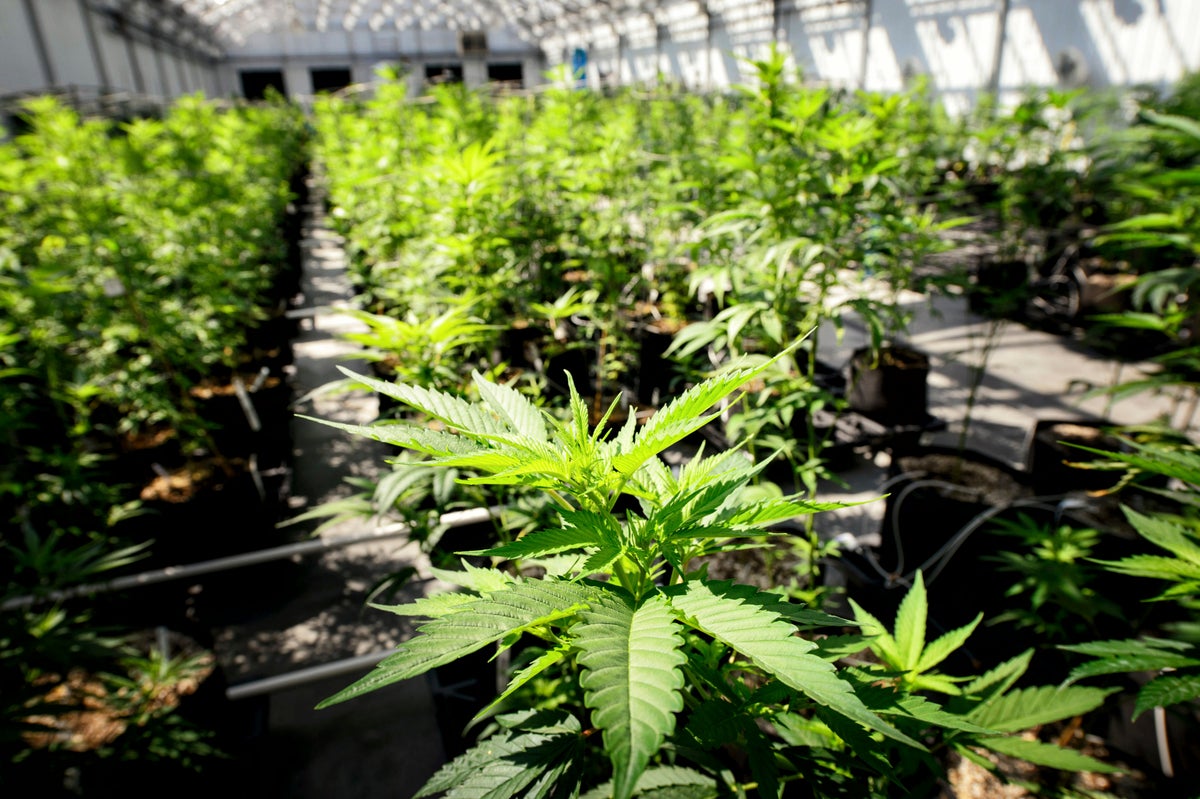
The Department of Health and Human Services (HHS) is now recommending that marijuana be shifted to a lower-risk classification under federal law, a move that could have major implications for medical research into cannabis as well drug legalisation efforts.
The agency is offering a non-binding recommendation to the Drug Enforcement Administration (DEA) to downgrade marijuana from its current status as a Schedule I drug, indicating a treatment with high abuse potential and no medical value, to a lower Schedule III status under the Controlled Substances Act, Bloomberg reports.
“It’s going to be an independent process that’s led by HHS and the [Department of Justice],” White House press secretary Karine Jean-Pierre said on Wednesday during a press briefing. “They’re going to certainly use the evidence. It’s going to be guided by evidence.”
Schedule I drugs include heroin and LSD, while Schedule III drugs include anabolic steroids and testosterone, according to the DEA.
Cannabis would still be prohibited under federal law, but moving it to a lower-risk status would make it much easier for researchers to investigate its properties.
The recommendation came in a letter from Assistant Secretary for Health Rachel Levine to the DEA, according to Bloomberg, and was based on extensive Food and Drug Administration analysis.
The change in status could open up further medical research into cannabis— (Copyright 2018 The Associated Press. All rights reserved. This material may not be published, broadcast, rewritten or redistribu)
“We can confirm DEA received a letter from the Department of Health and Human Services providing its findings and recommendation on marijuana scheduling, pursuant to President Biden’s request for a review,” the DEA said in a statement to The Independent. “As part of this process, HHS conducted a scientific and medical evaluation for consideration by DEA. DEA has the final authority to schedule or reschedule a drug under the Controlled Substances Act. DEA will now initiate its review.”
President Biden ordered HHS to conduct a scientific review regarding cannabis last year as part of a large initiative that included federal pardons to combat what the president called the “failed approach” of the US War on Drugs and mass incarceration.
“Sending people to prison for possessing marijuana has upended too many lives and incarcerated people for conduct that many states no longer prohibit,” Mr Biden said at the time.
According to a 2020 ACLU report, the US spends $3.6bn a year on enforcing marijuana laws, which have made little impact on cannabis’s use or availability.
Instead, these efforts have lead to disproportionate arrests of communities of colour, with Black people nearly four times as likely as white people to face marijuana charges, despite both communities using cannabis at similar rates.
While cannabis remains prohibited at the federal level, it’s legal in large parts of the US under conflicting state law.
The War on Drugs has driven disparate arrests on communities of colour— (AFP via Getty Images)
Medical marijuana is legal in 40 states and the District of Columbia, while recreational marijuana is legal in 23 states and the Dirstrict of Columbia, according to Marijuana Business Daily.
Marijuana was first placed on Scheduled I during the Nixon administration.
Nixon officials have later said they were driven to criminalise the drug because they thought it would harm the president’s enemies.
“You want to know what this was really all about?” Nixon aide John Ehrlichman told a journalist in 1994, according to Harper’s Magazine. “The Nixon campaign in 1968, and the Nixon White House after that, had two enemies: the antiwar left and black people. You understand what I’m saying? We knew we couldn’t make it illegal to be either against the war or black, but by getting the public to associate the hippies with marijuana and blacks with heroin, and then criminalizing both heavily, we could disrupt those communities. We could arrest their leaders, raid their homes, break up their meetings and vilify them night after night on the evening news. Did we know we were lying about the drugs? Of course we did.”
Alex Woodward contributed reporting to this story.







